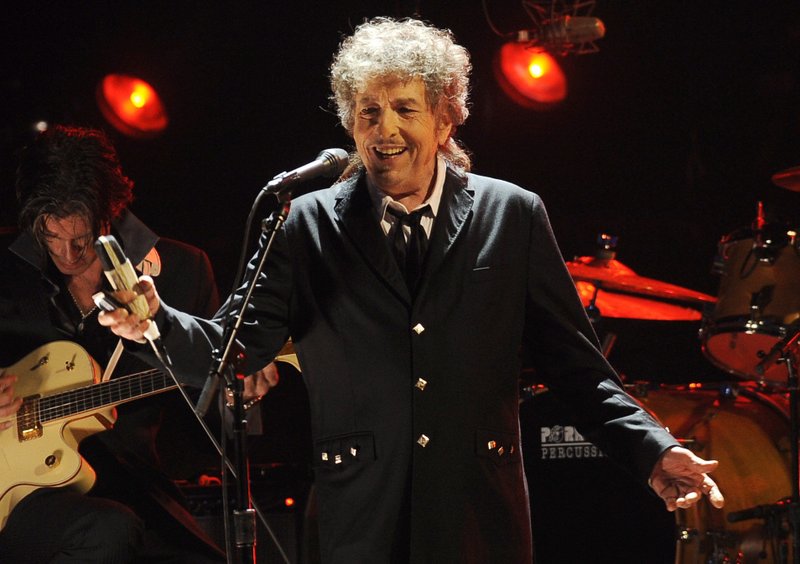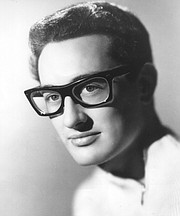This is an unreleased song we recorded a while back that you might find interesting. Stay safe, stay observant and may God be with you.
— Bob Dylan, upon last week's release of "Murder Most Foul"
I don't think Bob Dylan likes "American Pie."
You can understand why the song might annoy him. It's kind of like Barry McGuire's "Eve of Destruction," the sort of song that people thought he did, a less elegant version of Dylan's imagistic '60s word riots. It's long and full of coded symbols and can be picked apart and analyzed. It's a song that presumes to speak for a generation, which Dylan never tried to do though he often got that sort of thing pushed upon him.
Maybe it's not so much that Dylan dislikes the song, it's just that he hates people thinking that it's his kind of song; Don McLean set out to "capture ... an indescribable photograph of America ... in words and music."
Dylan is famously "just a song and dance man" who reads a little Rimbaud on the side. He wasn't going to call what he did poetry, he'd leave that up to the Nobel committee.
But Dylan doesn't like that he's supposed to be the jester in that song.
"Yeah, Don McLean, 'American Pie,' what a song that is," Dylan told Bill Flanagan in a rare interview published on bobdylan.com in 2017. "A jester? Sure, the jester writes songs like 'Masters of War,' 'A Hard Rain's a-Gonna Fall,' 'It's Alright, Ma' — some jester. I have to think he's talking about somebody else. Ask him."
Truth is, as pop songs go, "American Pie" is a long one, but catchy enough to bear up for the duration. It's a nice record, especially when the piano kicks in and the tempo surges; McLean has one of those wide-open boy-scout voices that can make the inane, indisputably infectious chorus go down easy. He's not Roky Erickson shouting about working in the Kremlin with a two-headed dog. He's just a"lonely teenage broncin' buck, with a pink carnation and a pickup truck." He's infinitely more relatable.
You can like "American Pie" even if the lyrics — presumably about how America lost its innocence when Buddy Holly's plane went down in an Iowa cornfield — make you cringe. It may be schmaltz, but it's our schmaltz.
What's most interesting about "American Pie" is how it was one of the first examples of the premature '50s nostalgia that ran like a fever through the early and mid-70s in America. (Remember, '50s music band Sha Na Na performed at Woodstock.) McLean nailed down Feb. 3, 1959, the day Buddy Holly, the Big Bopper and Richie Valens died, as "the day the music died," but that date wasn't particularly memorable before the song hit in 1972.
McLean once said he remembered going to school the day after Holly died and being shocked that nobody seemed to care.

But Holly hadn't had a hit record in almost two years. Elvis Presley was in the Army. Rock 'n' roll was sort of passe. The Platters' "Smoke Gets in Your Eyes" was the No. 1 song in the country on Feb. 3, 1959 — it had succeeded "The Chipmunk Song" as the nation's top hit.
To be more precise, what emerged in the early '70s, what "American Pie" was a harbinger of, was more pre-Beatles nostalgia than strictly '50s nostalgia. For instance, George Lucas' 1973 film American Graffiti (which begat the TV show Happy Days), was actually set in 1962, before the deluge, before the one-two punch of the assassination of President John F. Kennedy and the Beatles' appearance on The Ed Sullivan Show that kick-started what we tend to think of as the '60s. (We could say the "Sixties" [as opposed to the 1960s] began in Dealey Plaza on Nov. 22, 1963, with the assassination of JFK and ended in Washington, D.C., with the resignation of Richard Nixon on Aug. 4, 1974.)
While "American Pie" was disingenuously arguing that we'd broken faith with the idea that music could save our mortal souls, the musical Grease, with its faux-'50s rock-lite show tunes, was opening on Broadway. Radio stations began adopting an oldies format that concentrated heavily on pre-Beatles rock. In June 1972, Life magazine devoted an issue to re-examining "the 50s."
With a photo of a peroxide blonde twirling a hula hoop on the cover, it promised a look at the "wacky revival" of :
Hula hoops
Ducktails
Sock hops
Marilyn Monroe look
Rock 'n' roll
Elvis himself
At the very least, give McLean and "American Pie" credit for raising the public's awareness of Holly; had it not been for "American Pie" Gary Busey would likely never had a chance to be nominated for an Oscar for playing Holly in 1978's The Buddy Holly Story.
Had it not been for McLean, Holly likely wouldn't have made it into the Rock and Roll Hall of Fame in its inaugural class in 1986. If not for "American Pie," Holly would have been largely forgotten.
Dylan would have remembered though.
Two nights before that plane crash, Dylan was in the crowd at a Holly show.
"I went to see Buddy Holly play at the Duluth National Guard Armory and I was three feet from him — and he looked at me," Dylan said when he accepted his Album of the Year Grammy for Time Out of Mind in 1998. "And I have some sort of feeling he was ... with us on this record."
. . .
My feeling is that if Dylan could have been Buddy Holly or Elvis Presley, he would have.
But he had a different skill set, so he went about making rock 'n' roll that was worthy of adult attention and essentially changed the culture. After Dylan, entertainers could also aspire to be artists. After Dylan, McLean could presume to bemoan the end of the innocence. You make do with what you're given.
And lately Dylan has become a Gnostic, playful figure, covering the American songbook and touring incessantly. While you can enjoy (or not) his crooning and his taste, most of us have followed Dylan's cue and written him off as a major songwriting force — we don't expect there to be another "Like a Rolling Stone" or "Tangled Up in Blue" or "Love Minus Zero —No Limit," because he's basically told us he can't write like that anymore, that some gifts desert us as we age. Dylan's been a different kind of artist this century. We don't expect him to drop singles on us.
So it's worth noting that he stuck his head above the parapet last week. A long song, longer even than "Brownsville Girl," "Desolation Row," or the album version of "Highlands," which stretches out for 16 minutes and 32 seconds though when he plays it in concert he generally wraps it up in under 11 minutes.
"Murder Most Foul" is 16 minutes and 56 seconds, about the length of one side of the ideal LP (in that same interview where Dylan takes issue with being called "the jester," he told Flanagan that the ideal length of an album was 32 minutes — his were always too long to fit).
And it has lots of words, 1,388 according to the software I ran it through, as compared to the 870 or so McLean scribbled out for his epic, which I keep bringing up because it's fair to read "Murder Most Foul" as kind of an answer song to "American Pie."
Maybe "Murder Most Foul" is Dylan's repudiation of "American Pie," maybe it's a kind of bizarre cover version (one that dispenses with the original's lyrics and melody). It's darker, and in some ways (not all) better realized, but it takes on the same theme: The failure of the American experiment.
For Dylan, it's the murder of JFK that marks where it all went wrong, and the song betrays a deep interest in the mythology of the assassination (and suggests that Dylan might have a fondness for the novels of James Ellroy).
But it's also a weirdly reassuring song, a reaffirmation that the old American weirdness, which seems very much upon us now, has always been with it. What better way to enter house arrest than with a 17-minute spoken word piece — it seems practically melody-free, another way it feels like the anti-"American Pie." Dylan's sonorous voice is serious but reassuring, occasionally avuncular, as it floats atop a dark sea of softly rumbling piano chords, violin notes shaved off in long curls, and a drummer who picks his spots.
We don't know much about the provenance of the piece, how long ago it was recovered ("a while back," Dylan's note says, could have been an out-take from 2012's Tempest sessions?) or who's playing on it. (Dylan might be the piano player; Donnie Herron played fiddle on Tempest, but who knows?)
Another way "Murder Most Foul" is not like "American Pie" is that it's not entirely cryptic; some of Dylan's references may strike a casual listener as obscure but most are readily parsable. In the second verse, Dylan intones The Beatles are comin'; They're going to hold your hand/Slide down the banister, go get your coat/Ferry cross the Mersey and go for the throat, you probably don't need to know about the young Paul McCartney's habit of entering the EMI studio at Abbey Road by sliding down the banister from the control room to get the gist of what he's saying. The British are coming.
Like "American Pie," there's some groaner poesy too, but the difference is that Dylan seems to understand when he's working purple, and he lays it on thick, tongue planted firmly in cheek.

He starts out his recitation with "Twas a dark day in Dallas, November '63/A day that will live on in infamy," about as cliched a beginning as you could give a murder ballad, which is exactly what he understands this to be.
"Murder Most Foul" is, by virtual of the timing of its release (and the fact that it's not embedded in a larger project), bound to get a lot of attention, but I'm not sure Dylan sees it as anything more than a tossed-off white elephant, a not completely successful experiment.
It's interesting, but largely constructed of shout-outs and dips into his impressive record collection. If you are the sort of music nerd who knows that Carl Wilson sang backing vocals on Warren Zevon's 1976 album Warren Zevon then yes, you're likely to be gratified by the way Dylan name-checks the Beach Boy and quotes "Desperadoes Under the Eaves."
Somebody out there will argue that this is great Dylan. It's not. But it's still Dylan, and Dylan pushing forward, trying to manage his shifting gifts in a way that might still matter. It's not directly about the coronavirus, it's about the way all our mortal dreams eventually expire. It's about how the times, they are a'changin'.
It's about nostalgia, which is longing for something that never was. On the other hand, just because something never existed doesn't mean we can't miss it. That we can't mourn it.
Don't let nobody tell you how to mourn.
It's not like they know any better than you, it's not like they feel it any deeper or more righteously.
Bob Dylan is dead, they said. Long live Bob.
Email:
pmartin@adgnewsroom.com
Style on 04/05/2020

